"We were fluttering, wandering, longing creatures a thousand thousand years before the sea and the wind in the forest gave us words. Now how can we express the ancient of days in us with only the sounds of our yesterdays?" -- Kahlil Gibran, Sand and Foam
I have a terrible habit, especially when committing words to paper, of trying to say exactly what I mean.
Despite knowing that arguments are more persuasive when made in a direct, concise manner, I persist in trying to construct air-tight arguments that leave nothing to the reader’s interpretation.
This habit was born from a deep concern about being misunderstood.
Each time I edit my work – striving to take the advice of writers I admire to delete, tighten, and simplify – I furtively add words and lengthen paragraphs, insisting to myself that the additions are required for clarity.
But really, I’m just railing against the critic in my head. I’m trying to address every argument that could be made against each one of my statements. I’m working to anticipate how a friend or family member might misunderstand me, how the internet fact-police might pick apart my words, how anyone, for any reason, might disagree with me.
I sit writing, pouring heart and mind and soul into weaving my knowledge, experience, and perspective into work that I will offer up to others. All the while, that voice in my head – that amalgam of real and imagined critics and internet trolls – talks to me, and I listen. And out of fear, I often respond.
Why do I write for this person?
Hasn’t every writer, every artist who has ever moved me been a person with the courage to have a point of view – a perspective which will almost certainly provoke skeptics and critics?
Why do I seek to persuade by disproving the alternatives to my assertions – trying to force the reader to stay with me by cutting off her exits rather than by convincing her to stay?
The true genius of art is to bring another person with you to the edge of your question, and to hint at your answer. It’s for her to grasp with her own sensations and her own words. It’s up to her to seek to understand, or to seek to argue.
Perhaps we can only experience real connection when we are willing to risk being misunderstood.
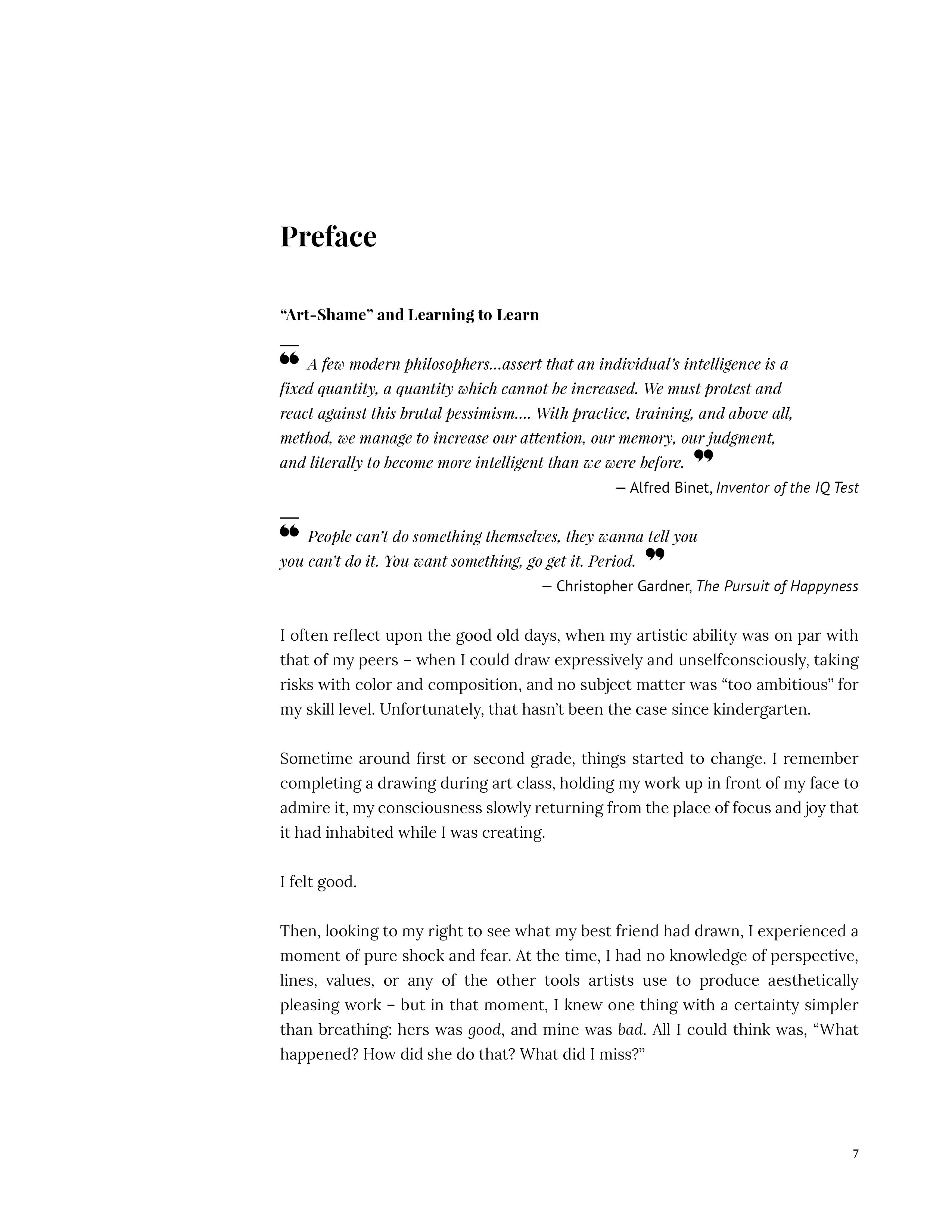
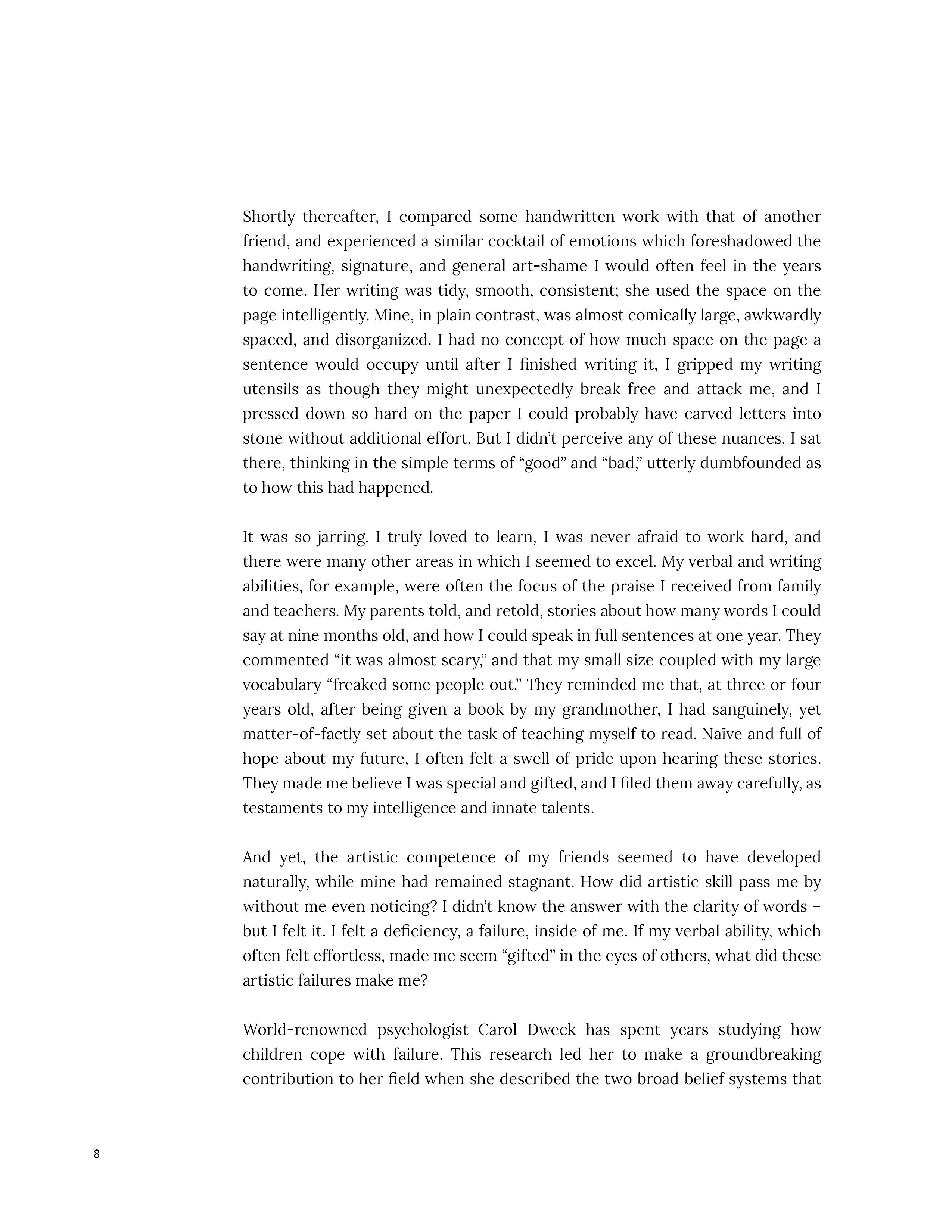
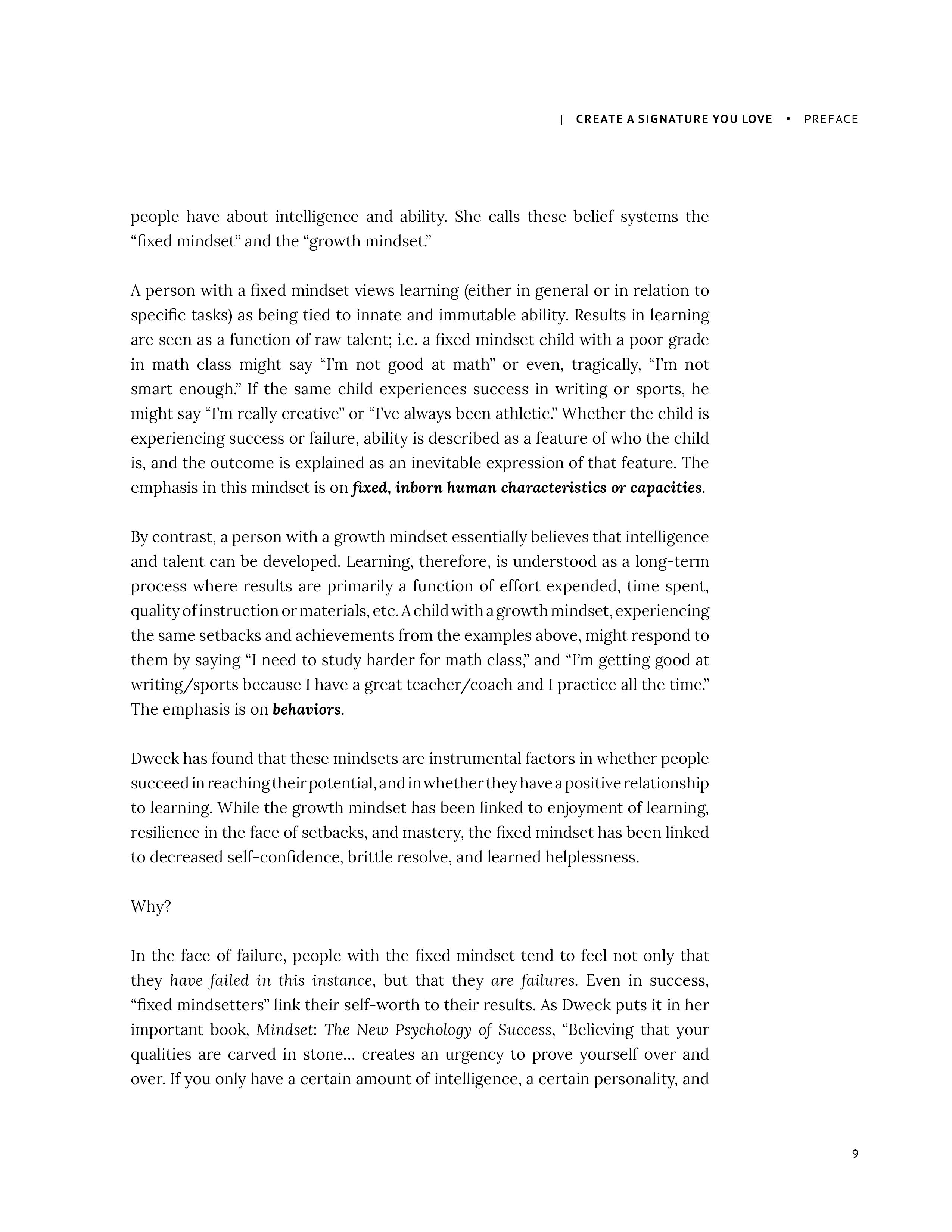
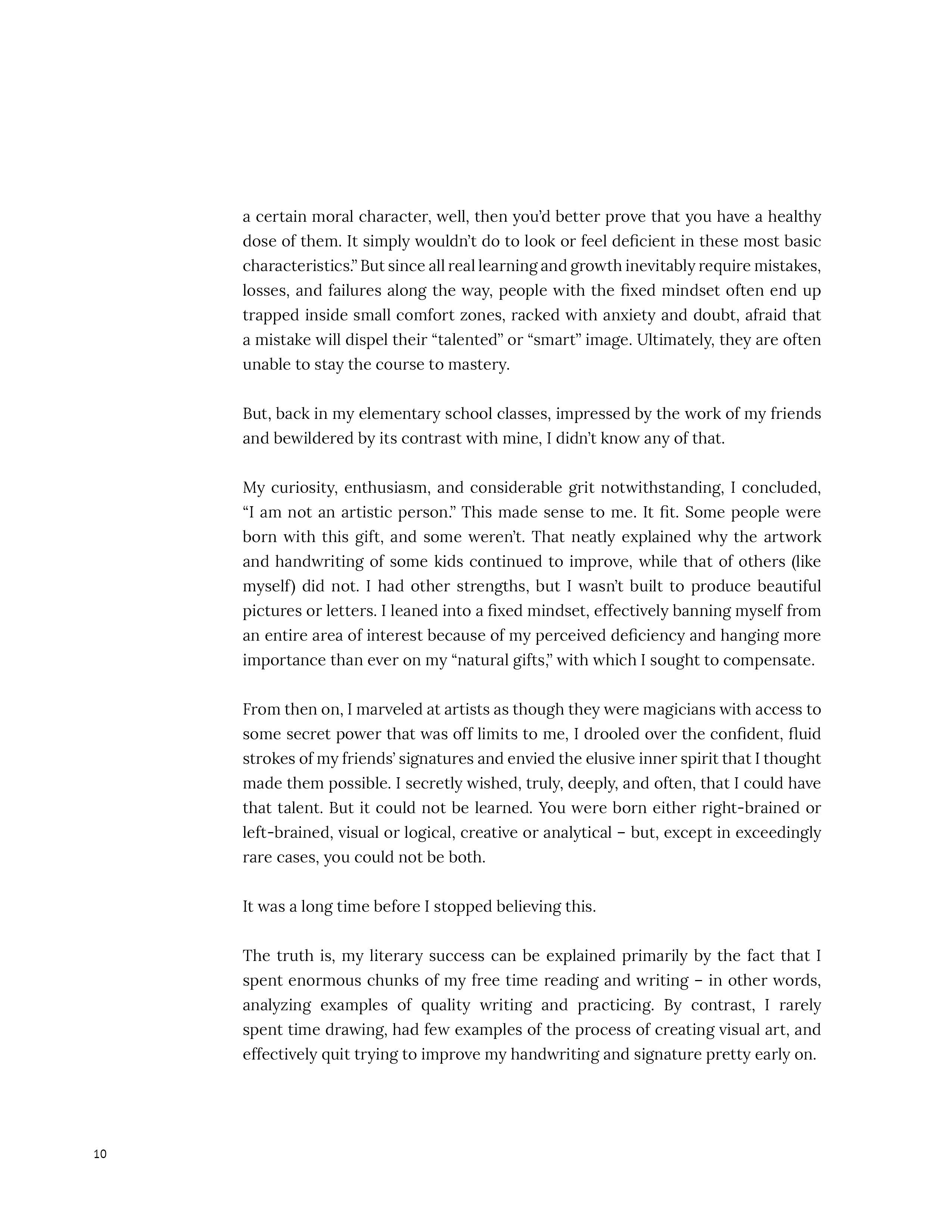
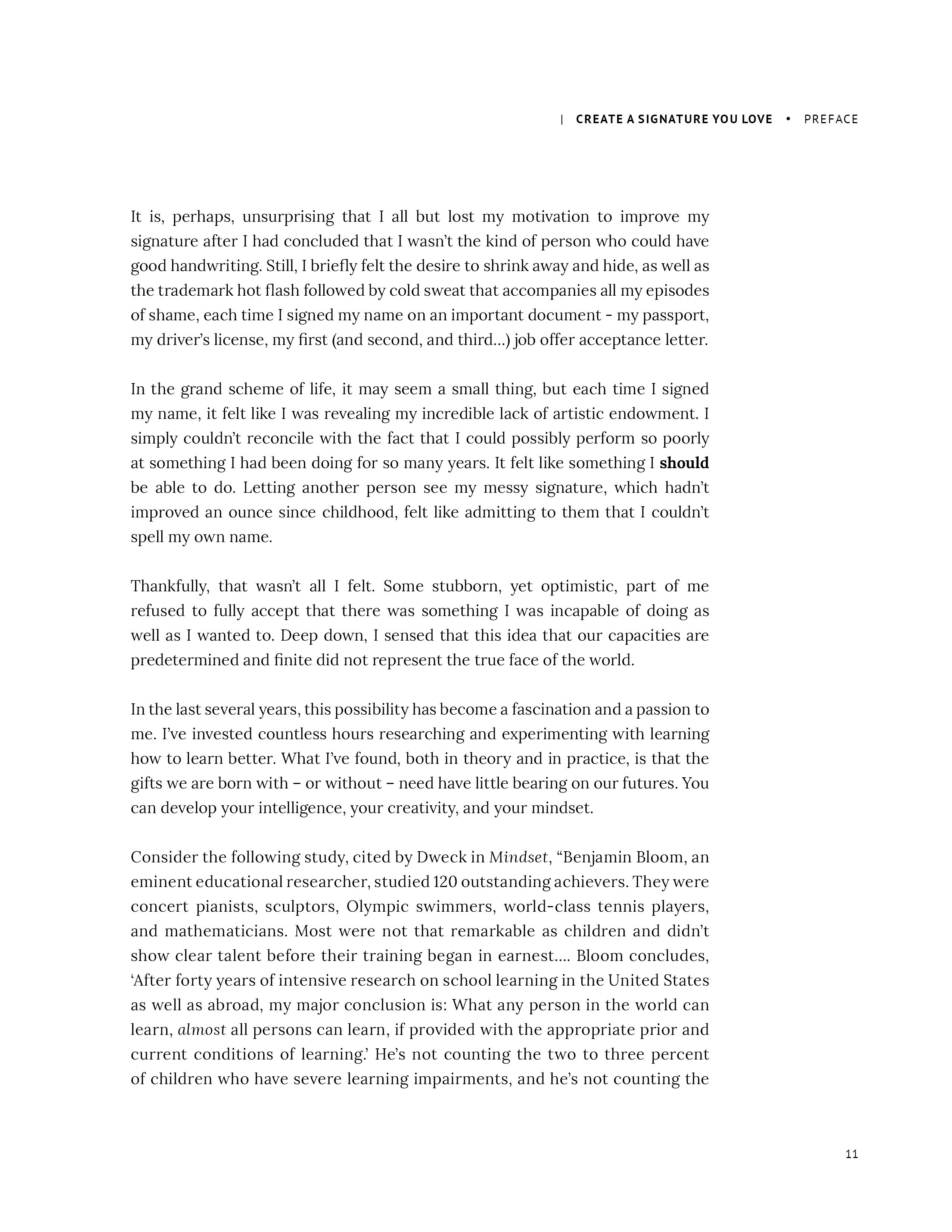
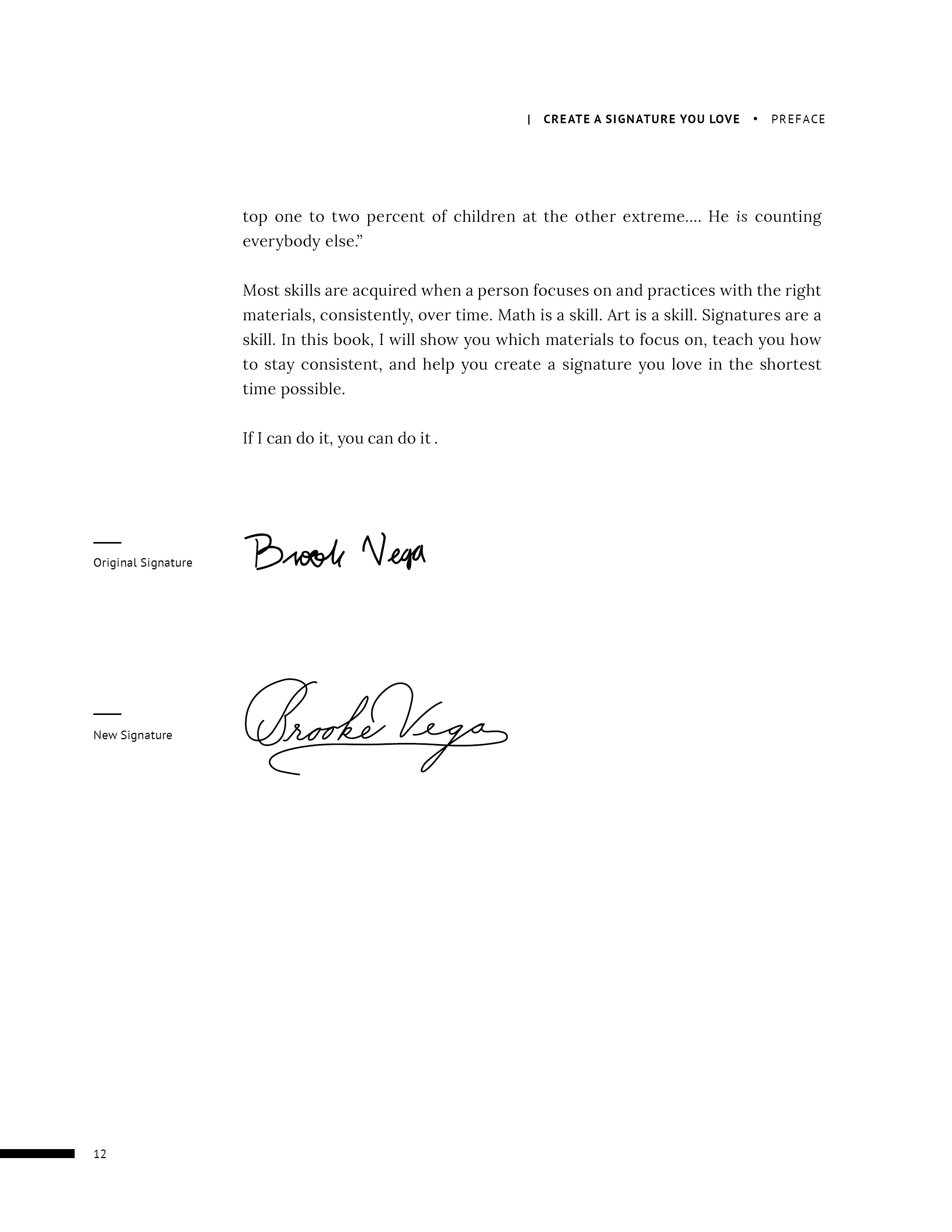
@Angie Bell – good luck!!
I am sorry to hear about your accident. I am also a rider.
I have no doubt that if you were already able to develop your dexterity with your non-dominant (left) hand, you’ll be able to develop the penmanship you want.
I’m sure you’ll create something beautiful, and I hope you enjoy the process as much as the result!
Sending love.
When I was 14 I pretty much had my shoulder ripped out of the socket besides the lasting effects from a horse riding incident like excruciating pain I also squired a liwopinion of my self where my handwriting was concerned.i had my arm immobilized for a long long time during which I stl had to do my school work.only now it was being done with my left hand!now being quiteambadextriousi saw this as a unique challenge.rught?wrong it was embarrassing my already chicken scratch style writing had become more like a kindaGardeners.it was humiliating being called to the teVhers desk all the time to tl her what it was I was atte.pting to write.now to this day even though I’m back to writing with the right hand my penmanship well it stinks.i hope your program can fi Lly bring me to a place of pride.ill let you know how it works out!
I completely agree with you, I to think of being misunderstood. I constantly write, and then erase taking to much time for a small task then rush through getting sloppy as I continue to keep things to the point.